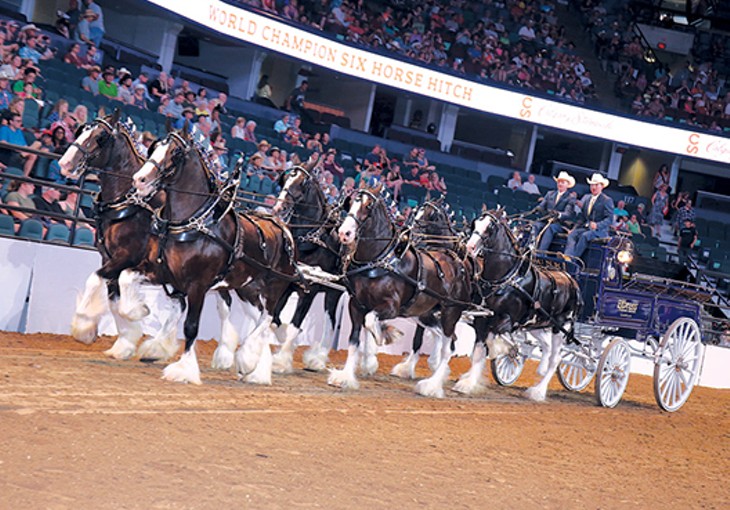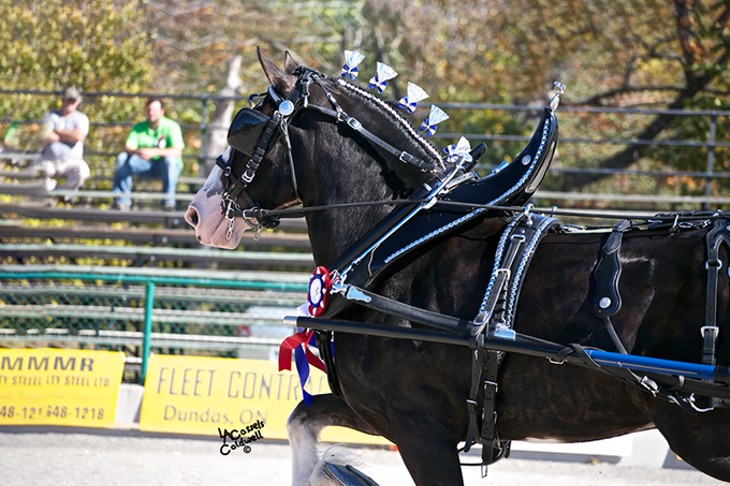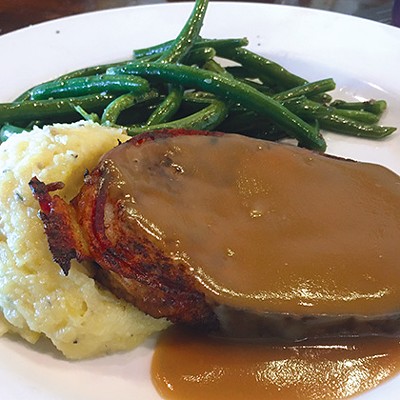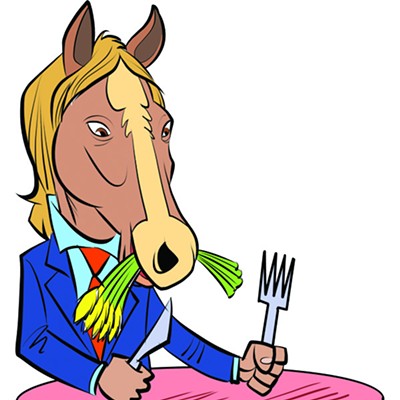
Draft horses originally from Scotland, Clydesdales are a gentle breed easily recognized by their playful personalities and bushy feathered legs — the breed’s mark of distinction. After only a quick visit with these animals, it was plain to see why they are some of the most sought-after horses in the world.
Bob Funk, owner of Express Ranches and CEO and chairman of Express Employment Professionals, is one of the individuals who fell for the horses while on a trip to Canada some time ago. In 1998, Funk launched a Clydesdale program that is still going strong 20 years after its founder laid the groundwork for its ongoing success.
Express Employment Professionals is a staffing franchise with locations across North America and South Africa with a total of 800 locations. The horses are expected to make between 150 and 200 appearances annually, achieving a sort of celebrity-like status internationally.
A ranch in Yukon has the privilege of caring for these horses, training them for a number of shows and events across the country. With only eight employees, the staff works hard year-round to ensure the horses are kept in tip-top shape so they will be ready to perform when the time comes to once again begin their tour across the continent.
When I first stepped foot on the Yukon ranch, I was greeted by a young Clydesdale who had been passively grazing on a nearby patch of grass. He walked slowly in the hot sun, though he carried about him a quality of humbled confidence. As he approached, I reached across the white-railed fence and, for the first time, gently laid my hand on the snout of a Clydesdale horse. Within three minutes of my arrival, I had made a friend.
As I made my way toward the stable, it was clear there was a lot going on. The team was preparing to leave for a show in Shipshewana, Indiana. Still, Josh Minshull, Express Clydesdales general manager, took the time to educate me on the life of a professional trainer.
“The hardest part is just keeping up with the demand of the schedule. It’s just busy all the time traveling,” Minshull said. “When we’re not traveling, we’re usually getting ready for the next trip.”
Full gallop
Moving ahead, these trainers aren’t pulling the reins on their schedules.
“In fact, we have two teams traveling all year this year. The other team is on their way home from Minnesota,” Minshull said.
In spite of the hours of preparation ahead, Minshull outlined the routine of a typical trip.
"I associate it with running an athletic club almost because you’re always working to get your teams better and train." — Josh Minshull
tweet this
“It takes us about an hour to get all the horses loaded up,” he said. “Usually, we can do it a little quicker, but we load ’em up and hit the road. We stop every three or four hours and get a coffee or use the restroom ourselves, but we also want to utilize the time to give horses a break because they’re constantly shifting and, you know, they’re not sleeping in the trailer. So if you can stop for 30 or 40 minutes, give them a break, let them rest. Because they’re standing, you know, they’re trying to balance.
“We try to travel no more than 10 to 12 hours a day with the horses, and we usually layover at another stable somewhere. So we unload the horses and put them in stalls.”
Learning to handle the trials and tribulations of life on the road is only part of the work that goes into mobilizing the Clydesdales.
“I associate it with running an athletic club almost because you’re always working to get your teams better and train. When you’re at home, you’re training and you’re trying to get the horses in peak performance,” Minshull said.
Loren Mast, assistant trainer, works with Minshull both on the road and back at the ranch. Training the horses is another the task the workers are faced with if they want to ensure optimum performance. Mast comes from a family of Belgian draft horse trainers, making him the ideal man for the job.
He summarized the training regimen.
“Basically, weight training early on just to get their muscle mass built up. … Getting close to show time, we’ll do more aerobic just to get their lung capacity and their air built up,” he said.
The training eventually pays off as the horses participate in shows ranging from parades to rodeos. One of their most popular events is in New York City for the Macy’s Thanksgiving Day Parade. They also compete. However, parades comprise the majority of the action for these horses.
“By the time they’re 5 years old, they’re usually physically and mentally ready to handle it,” Mast said. “A lot of them we start training when they’re 3. But usually, mentally, they’re just not ready for it.”
Nature and nurture
The horses they recruit are required to meet a high standard of selectivity. They must be both purebred and black-and-white in color, a rare occurrence in the Clydesdale community. A combination of documentation and DNA testing is used to ensure the horse is legitimate. After the purchase, it stays at the ranch until it’s ready to travel.
For the most part, all horses are taken on the road eventually. There are 30-35 horses currently on-site, and fortunately, they are quick to adapt.
“It’s like giving your toddler a haircut the first time,” Minshull said.
Similar to people, these horses have personalities of their own, providing the trainers with more laughs than troubles.
“We spend a lot of time with them, so you get to know their individual personalities for sure. They are all completely one of a kind. They may have some running similarities, but they’re different,” said Tabitha Hageman, stable hand. “Some just like to eat really, really quickly; some like to pick at it slowly and take their time. Some like to walk fast outside, and some like to take their time. And just like people, some days they might be different. … One day, they’re tired, and the other day, they’re refreshed and ready to go, just like people.”
It’s this sort of understanding that allows the trainers to excel at their work. Without having a relationship with the horse, it would be difficult to carry out the daily tasks required on a ranch of this caliber.
“If you have a passion for the horses, it keeps the drive,” Hageman said. “Even when you’re tired, you’re like, ‘But I love this horse, so I’m gonna get out of bed.’ You know, ’cause a lot of times, we’re more worried about getting them breakfast than ourselves breakfast.”
Visit expressclydesdales.com.












